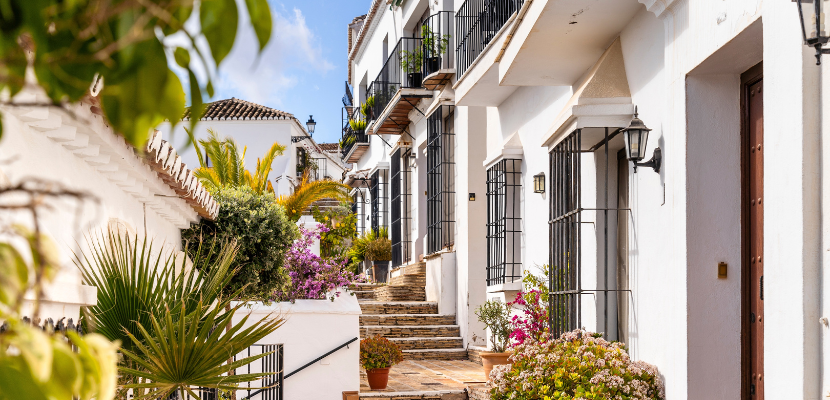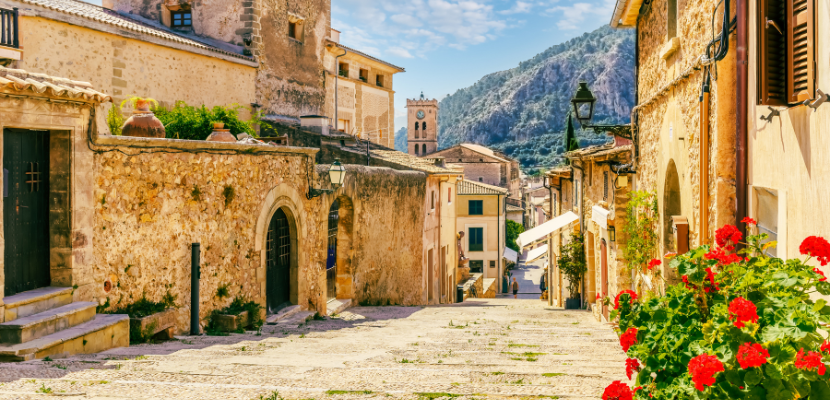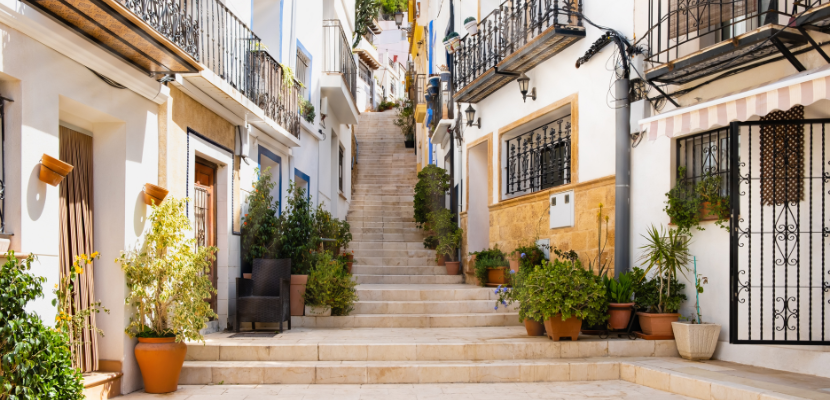
Spain is one of the tourism engines of Europe. Last year it attracted 94 million tourists - 10% more than the previous year.
The British love to buy a holiday home in Spain more than any other European nationality - and if you can help cover its costs by renting it out – why not?
For some people there are a few why nots, but equally, if you are savvy in what you buy and where, you can rent out your home to cover the bills and even a few trips to stay there yourself.
But most importantly - if you are banking on some rental income, then you really have to consider a few things when you are researching what to buy.
It’s also a fast-changing landscape, with new rules in Spain from April 2025. As Spain battles over-tourism in some areas, it’s hard to keep up with local laws.
Here are some things to consider.

Short-term rental laws in Spain: new rules
You need to know if you are legally going to be permitted to rent out your home for short-term lets. Short-term rentals in Spain are typically for periods of days or weeks, but usually not exceeding three months.
There may be rules to consider at national level, regional level, community or block level, and also for the individual property you purchase.
From 2 January 2025, Spain introduced new legislation designed to regulate the market. It’s aimed at creating a central platform that will record and manage short-term rental activity.
For many years, many of the most popular autonomous communities for tourism like Andalusia and Valencia already required property owners to register their short-term rentals, but now this applies to some* owners across Spain.
They must register their properties with the authorities – or the Ventanilla Única (one-stop shop) – and obtain a unique registration number. It will be enforced from 1 July, and you won’t be able to list your property on a platform like Airbnb or Booking.com without this number. Inspections and fines will be used.
*But a note: the new system applies to those who advertise on online platforms that enable direct booking and payment. If you don’t use those platforms, then technically you don’t need to register – but it’s not hard to see why it’s causing confusion.
Further to this new legislation, the owners of apartments within a block will also face another change. From 3 April 2025, new tourist rentals in Spain require the approval of 60% of the other residents in the residential building to start letting it out.
The regulation empowers neighbours across the country to block such rentals and is addressing problems in cities such as Madrid and Barcelona where locals have to deal with disturbance and other issues related to a turnover of holiday rental guests.
Tourist lets that already had all the paperwork in order before 3 April 2024 will not be affected. Buyers will need to beware of this change – and also may wish to avoid this type of property.

Regional differences
In addition to this national legislation, regions and local authorities can implement their own rules on the issue of short-term licences and how they are conducted. Some are bringing in strict time limits, others outright bans.
For example, in the city of Madrid, there’s a freeze on new short-term rental licences until February 2026 – whilst it’s planning a complete ban in the historic centre; Seville has a cap on licences. This follows Barcelona’s plan to ban all short-term licences by 2028.
Málaga city imposed a three-year freeze on short-term licences in 43 districts in January 2025, whilst Alicante city has implemented a two-year ban.

Not just the cities?
The Balearic Islands – including Mallorca, Ibiza and Menorca – have also had a freeze in place on new short-term rental licences. In Palma and Ibiza, apartment lets are banned completely, whilst there’s a moratorium on the issue of new licences across the islands since 2022 that is due to end in 2026, although it may be extended.
Properties that already hold a tourist rental licence may continue to rent within the rules specific to the location during this time – in Mallorca there are zoned areas, depending on the level of holiday rentals. In some areas, apartments have a 60-day limit while houses can be rented throughout the year; in other areas all properties may have this limit.
Complicated? Yes! Because in the Canary Islands there is a different situation again – and also the possibility of an increased tax on holiday rentals. New-build properties may not be permitted to be holiday lets, so make sure you get your lawyer to check local rules at the time of your search.
Also, some older properties might not comply with the basic standards needed to rent them out – bear in mind energy efficiency will become increasingly important in professionally let-out homes.

Tax and cost considerations
Once you know it’s legal, beware that you will be subject to pay tax on income earned, and also possibly local tourist taxes.
If you are a non-EU citizen you will pay a higher rate than an EU passport holder: a flat rate of 24% on gross rental income, with no deductions permitted. These rates assume you are non-resident in Spain – residents pay general income tax rates.
Budget for management costs: community fees, annual taxes, insurance policy costs (higher for rental properties) and agency fees (if applicable). Upkeep – higher wear and tear – will cost more.
If you are buying as a rental investment, you will also want to maximise your bookings and this brings with it a whole different set of priorities that involve location, rentability of the property itself, availability of amenities like a shared pool – different from if your property is a family holiday home, first and foremost.
But either way, you need someone local on the ground to deal with emergencies if you don’t use an agent. Then consider any marketing costs: listing on portals or placing ads all costs money.
But on the upside, holiday rental rates on the coasts are on the up: 6–7% higher than a year ago, according to Grupo Tecnitasa. That’s 40% since 2020. Good news for owners, less so for visitors.
Thinking about buying a property in Spain to use as a holiday rental? Make sure you're informed from the start - read our Buying Guide to Spain for practical advice on the process, legal considerations, and what to expect.
Or start your search now by browsing properties for sale in Spain.